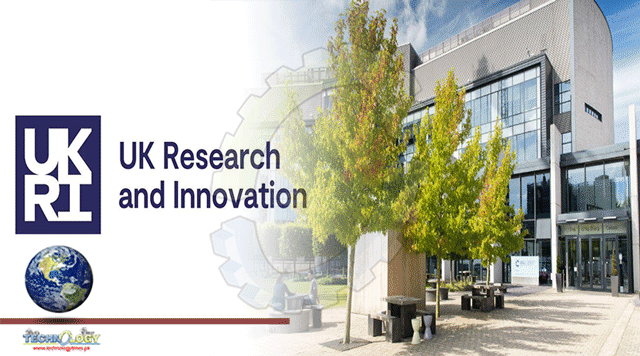UK Research And Innovation (UKRI) Is Investing £213 Million To Expand And Upgrade The UK’s Existing Research Infrastructure.

UK Research And Innovation (UKRI) Is Investing £213 Million To Expand And Upgrade The UK’s Existing Research Infrastructure to help tackle major challenges such as COVID-19 research and recovery, and net-zero goals. UK researchers will be provided with advanced equipment, facilities and technology, to ensure that the UK remains an attractive place for scientists, researchers and entrepreneurs to live, work and innovate. It will also help with the UK’s economic recovery.
The £213 million funds come from the government’s World Class Labs funding scheme and is made through eight of UKRI’s constituent research councils. It covers investments in all disciplines from physical sciences to arts and humanities, and includes:
- Scientific equipment to boost virus research and replace machines that have been heavily used in COVID-19 research.
- Hardware and software upgrades:
- Bringing advanced analytical capability and enhanced capacity, enabling centres to reveal how COVID-19 has influenced urban mobility and social and economic activity.
- Extensions to household surveys to understand how the pandemic has affected UK households’ experiences of homeschooling, family relationships, and other topics.
- An offshore floating wind turbine facility at the University of Plymouth, allowing experiments with wind, waves and currents simultaneously.
- Modernisation of and investments in renewable energy at research sites, environmental research centres, vessels, aircraft and labs as part of a commitment to environmental sustainability.
- Research infrastructure to address research capacity differences in regions across the UK.
- Alterations to research infrastructure to ensure it is COVID-19 safe, helping to keep researchers safe.
- Modernising galleries, libraries, archives and museums, which help anchor us to our past, pointing to innovation to safeguard our future, and serving local communities for generations.
Science Minister Amanda Solloway said:
“The response from UK scientists and researchers to coronavirus has been nothing short of phenomenal. We need to match this excellence by ensuring scientific facilities are truly world-class, so scientists can continue carrying out life-changing research for years to come as we build back better from the pandemic. “From the world’s most detailed microscopes tracking disease to airborne drones monitoring greenhouse gas emissions, our investment will enhance the tools available to our most ambitious innovators across the country. By doing so, scientists and researchers will be able to drive forward extraordinary research that will enable the UK to respond to global challenges such as achieving net-zero carbon emissions by 2050.”
Professor Ottoline Leyser, Chief Executive of UKRI said:
“Research and innovation infrastructure is key to delivering the government’s R&D Roadmap, with some of the most innovative ideas with transformative R&D potential requiring access to leading-edge infrastructures, including national research facilities, equipment and instrumentation, networks of technologies and digital infrastructures, and knowledge-based resources such as collections and museums. “Outstanding infrastructure helps to convene talent from the public and private sectors and across disciplines to tackle society’s most complex challenges. It acts as a magnet for researchers and innovators internationally, contributes to local and national economies, and generates knowledge and capability critical to UK policy, security and wellbeing.”to Facebook’s revamped.
This news was originally established at Open Access Government.